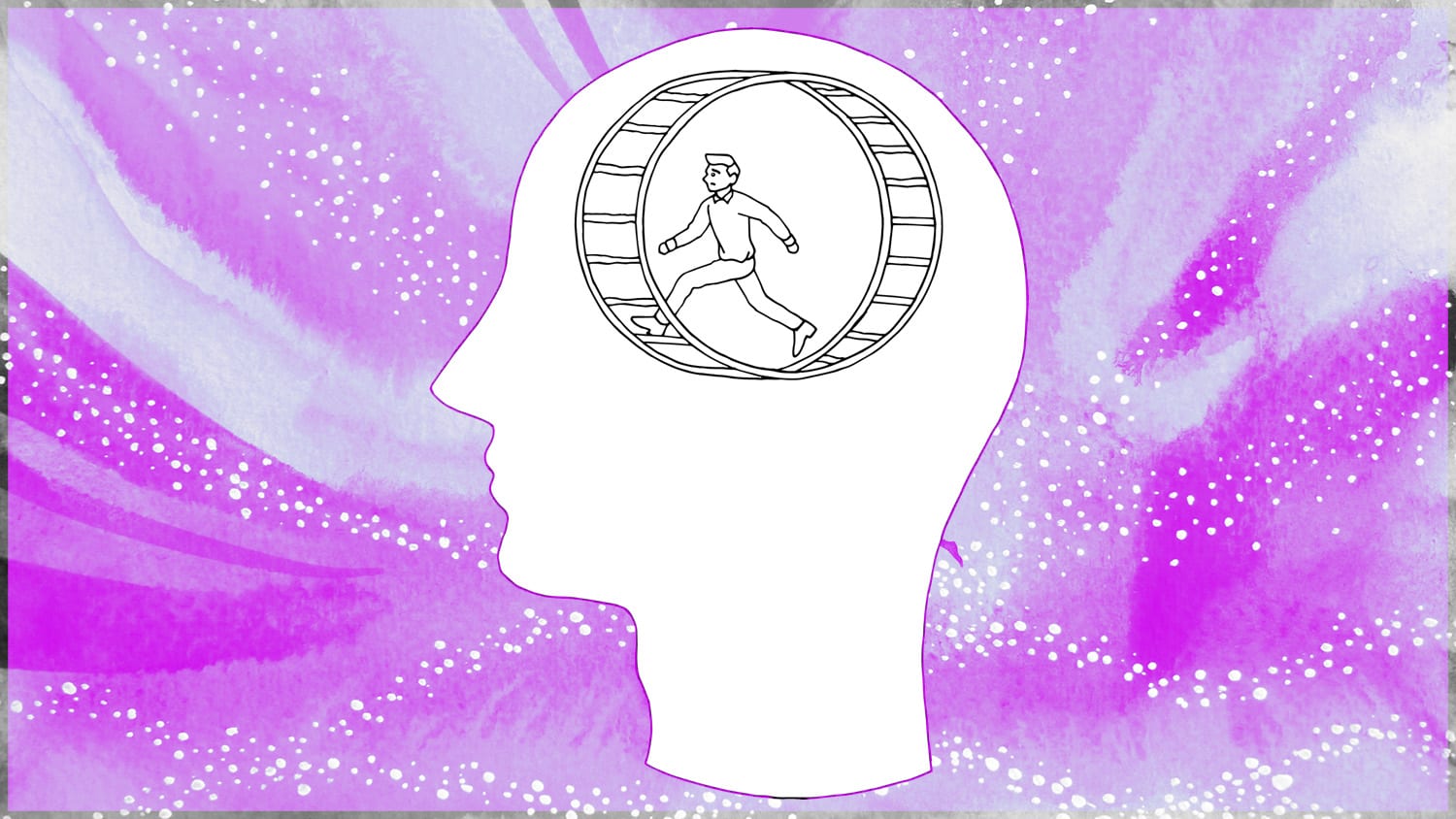It’s a virtuous cycle
I’m sure all of us can relate to the scenario where we buy something or get some material possessions and we obsess ourselves with it for the first few days(at tops a month) and then our excitement decays. This is a natural principle and is tied in closely with the concept of the Hedonic Treadmill. Sounds exciting right? I bet you it is. But I guess it’s something you probably know already. Anyway, just like the online creators put it ‘creativity is being able to take existing ideas and create interesting frameworks from it.’ So, I’m going to take the existing concept of the Hedonic Treadmill and add my icing to the cake. Let’s see what fruits I reap from it.
The Hedonic Treadmill/Adaptation is a concept that can be well represented through a graph. It looks like this:

Essentially, it’s the concept that happiness progresses like a sine wave over time. You have satisfaction with what you have then soon enough you begin aspiring for bigger/newer/better things and you eventually end up getting it. Then after getting used to it for a while, you lose the interest and seek for even better things. The process repeats. It’s a virtuous cycle.
Interestingly though, knowing this fact alone creates a context within our mind to establish better control. Yes, humans naturally have a feeling of constantly improving. Desire. It’s is a personal attribute where you constantly seek improvement.
This attribute can, however, be dangerous when uncontrolled. This is why desire is a sensitive topic and requires careful attention from oneself. In important scenarios, it’s important to keep ourselves controlled and frame a question checklist to draw a fine line between controlled and uncontrolled desire. It’s always better to stay within your comfort circle for this particular scenario.
What do I mean by uncontrolled desire? Well, we’re constantly seeking improvement and in such a psychological state, we might think that anything is better. This may even mean that you might accidentally choose the wrong ‘thing’ for the sake of improvement. That’s exactly when we need to ask ourselves questions such as:
- Is this really going to help me with my goals?
- Is this a healthy choice? As in, will it not lead me down the dangerous alleyway?
- Am I making a conscious decision?
Once you’ve asked yourself these fundamental questions, you’ll have the confidence and you’ll have established the building blocks of stability and conscious decision making.
So with that mentioned, I do want to back-pedal to the primal concept. Of course, you’ll have these strikes of extreme desire, but you also get the opposite feeling of complete boredom after a while. One of the objects that comes to my mind straight away is the Diablo. It’s a Chinese yoyo and looks like this:

When I first got it(back in 2014), I was obsessed with it. I learnt so many tricks within a short time-span and you know what? I even mailed my dad a video of me doing it. I took that additional(debatably unrequired) step just to show off my interest and skills. Didn’t know old me liked it that much! Huh, it’s interesting how opinions and perception evolve so drastically. Anyway, I quickly lost interest over time as I just didn’t have the same fascination to the product as before. This reminds me of my phone as well which went through a similar phase. Wonder how the product feels for us not liking it anymore. I am immediately thinking of the Toy Story movie which shows feelings in toys and I assume the product does feel melancholy for being betrayed. Ah well. My point is that there are many things you can associate this cycle within your world.
What can we actually learn from it? We now know that it’s applicable to every one of us. But what can we do with it?
Evolution
As the fundamental human psychology inherits the feeling of desire, it’s fair to say that we are constantly seeking for better versions of ourselves. Constantly. What happens after seeking for improvement over a long period of time? Well, the context evolves vastly that it’s almost as if you’re a new person! Imagine this. You have evolved from the age that you were a baby to what you are now. You have gone through so many transformations in the process including physical and psychological changes. You keep thinking that you’re better than you were every time you think of yourself. Then after a few years, the same feeling strikes again. It’s a constant process of improvement. But the important thing is that after so many iterations, the meaning changes a lot! You are no longer the same as what you may have been when you were young. You would have had different thoughts and perceptions of the world. This gets me to the point…
We’ve gone through many cycles of the hedonic treadmill that it makes us a new person. Is this better or worse? Well, in my opinion, evolution is a natural process of personal development and yes, I would agree that it’s better. But this eagerness to constantly seek for better things and be better almost shuns away the present moment completely. And that’s unfortunate because we live to experience every moment. I’m sure you’ve heard of this idea already but we are all constantly seeking for a big moment when we suddenly feel happiness after we retire or we can do anything we want after we complete our uni. The reality is that you can even do it now! You just think that you can’t! I am a sort of hypocrite in saying that because even I constantly chase a void future. I need to fundamentally transform my perception to live the present moment fully. I know it’s going to be a mind-blowing feeling and I’ve felt it at multiple occasions where I got out with the family or enroll in an adventurous activity. My mind does not stray and allows me to live that moment perfectly. This is one thing I guess we can take away from the hedonic treadmill concept. It’s that, we are always seeking improvement and perhaps we should just assess that to confirm whether we are enjoying the feeling or whether we’re missing the present moment completely.



Leave a Reply